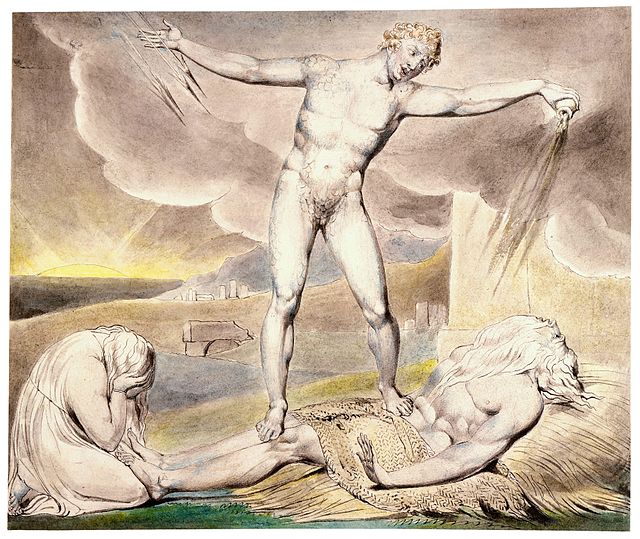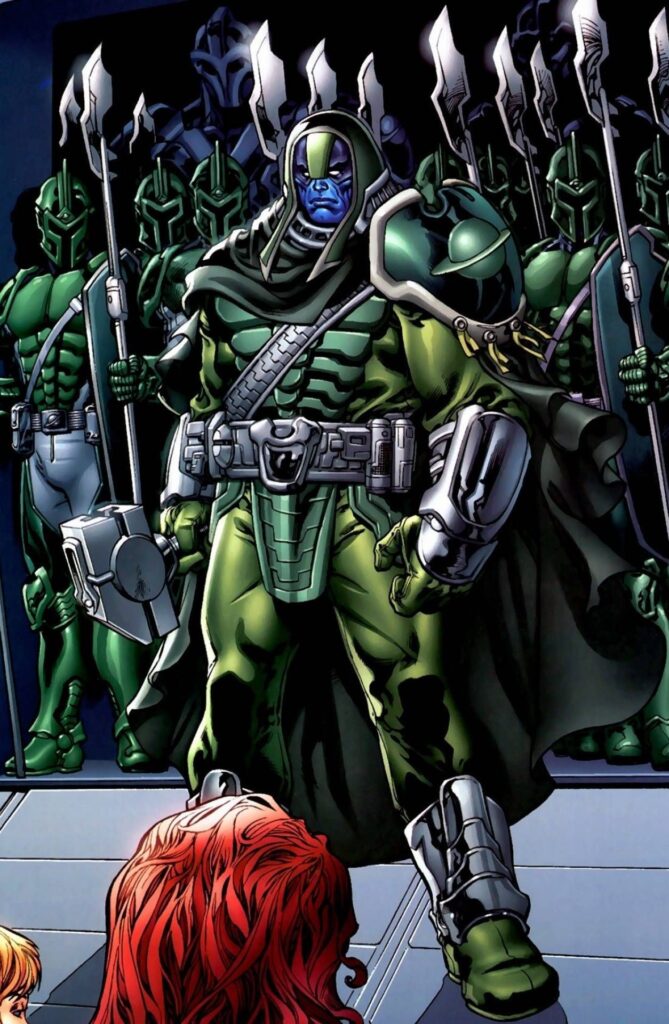“The Accuser” sounds like a character in a DC Comic book — like The Joker. But instead of telling jokes, this guy accuses. And as it turns out this guy is a devil or a satan. The English word “devil” is derived from the Latin word Diabolus which is the Latin form of the Greek word, διάβπλος, which means accuser. Argh, an accuser is a devil. I read this first from Nibley:
Never accuse. Of course, Satan is “the accuser.” The word DIABOLUS from which the name devil comes means accuser. He is called “the accuser of his brethren” in the scriptures. Adam said to Satan, “I will not bring a railing accusation against thee. Let God judge between me and thee.” Adam would not accuse Satan after what Satan had done to him, you see. So we don’t accuse anybody, no matter how guilty they are.
(Hummel, Sharman Bookwalter. Nibley’s Commentary On The Book of Mormon, Volume One, . Kindle Edition.)
Actually, there are many satans because that is a description not a name of a single person. Let’s see I read that somewhere. Yes, the book, When Giants were Upon the Earth. The author talks about the heavenly council in 1 Kings 22 and Job 1 and 2 which describes the adversarial character, “the satan” —
Job 1 and 2 picture a very similar scene of God’s heavenly assembly “presenting themselves” in a legal procession “before the Lord” with the added element of the prosecuting “adversary” (the Hebrew word ha satan means “the adversary”):
Job 1:6-12 Now there was a day when the sons of God came to present themselves before the LORD, and the adversary also came among them… And the LORD said to the adversary, “Behold, all that he has is in your hand. Only against him do not stretch out your hand.” So the adversary went out from the presence of the LORD.
Job 2:1-6 Again there was a day when the sons of God came to present themselves before the LORD, and the adversary also came among them to present himself before the LORD… And the LORD said to the adversary, “Have you considered my servant Job, that there is none like him on the earth, a blameless and upright man, who fears God and turns away from evil?…And the LORD said to the adversary, “Behold, he is in your hand; only spare his life.”
Once again, God counsels with his divine assembly of sons of God, asking questions and deliberating, in this case with the adversary, or “the satan.” And then God gives the adversary the responsibility of carrying out the will of God’s overseen council meeting.
(Godawa, Brian. When Giants Were Upon the Earth: The Watchers, the Nephilim, and the Biblical Cosmic War of the Seed (Chronicles of the Nephilim) (p. 57). Warrior Poet Publishing. Kindle Edition.)
And perhaps an accuser is sometimes needed? Not sure about that. But it does make sense, as we need opposition in all things. This earth has the need, and there was a satan adversarial contingent in the pre-earth life too. There must be a place of rest and reprieve where we do not have to be on guard. Not sure. Then I read this as well —
ha-satan (the adversary) is an ambiguous figure in the earliest Hebrew texts. Far from being the malevolent, majestic embodiment of pure evil imagined by Milton, the figure we confront in the Hebrew Bible can sometimes be a source of assistance around the heavenly court. Conversely, and even more surprisingly, Yahweh is depicted in some of these texts as having a moral character that is not wholly good. This Reflection assesses the way the depiction of ha-satan evolves across various parts of the Hebrew Bible, and relates it to the way the character of the devil is depicted in Christianity.
(The Early History of Satan Before the satan Was Evil, Esther J. Hamori, DOI:10.1093/oso/9780199915453.003.0005)
Zechariah records another council with a satan figure —
Zech. 2:13-3:7 Be silent, all flesh, before the LORD, for he has roused himself from his holy dwelling. Then he showed me Joshua the high priest standing before the angel of the LORD, and Satan [“the adversary”] standing at his right hand to accuse him… Now Joshua was standing before the angel, clothed with filthy garments. And the angel said to those who were standing before him, “Remove the filthy garments from him.”…And the angel of the LORD solemnly assured Joshua, “Thus says the LORD of hosts…”
In this vision of Zechariah he sees into God’s holy dwelling where Yahweh has brought his heavenly host standing before him and the satan standing ready to accuse Joshua before the heavenly court. Yahweh is called “Lord of hosts” because he is surrounded by that heavenly host of the sons of God
(Godawa, Brian. When Giants Were Upon the Earth: The Watchers, the Nephilim, and the Biblical Cosmic War of the Seed (Chronicles of the Nephilim) (pp. 57-58). Warrior Poet Publishing. Kindle Edition.)
I looked at Synonyms for accuser as in petitioner, appellant —
- appellant, petitioner, pleader, appellee, accused, defendant, complainant, plaintiff, suer, litigant, party, suitor
Synonyms for accuser as in troublemaker, blamer —
- blamer, troublemaker, baiter, harasser, heckler, mocker, needler, persecutor, quiz, quizzer, ridiculer, taunter, tease, teaser, tormentor, torturer, agitator, instigator, belittler, derider, detractor, giber (or jiber), insulter, jeerer, scoffer, scorner, trash-talker, smart-aleck (also smart alec), smarty (or smartie), smarty-pants, wiseacre, wise guy
I was wondering about the antonyms for the accuser —
- peacemaker, reconciler, uniter, comforter, solace, soother, succorer.
Well, this is a deep rabbit hole. I am writing down my finds as I follow the white rabbit.
And lo and behold — Here is Ronan, the Accuser from Marvel Comics — I guess they had such a character — I’m always surprised how much truth you can find in the comic books.
Of course, the satan figure has been a favorite for screenwriters since the beginning of film —







